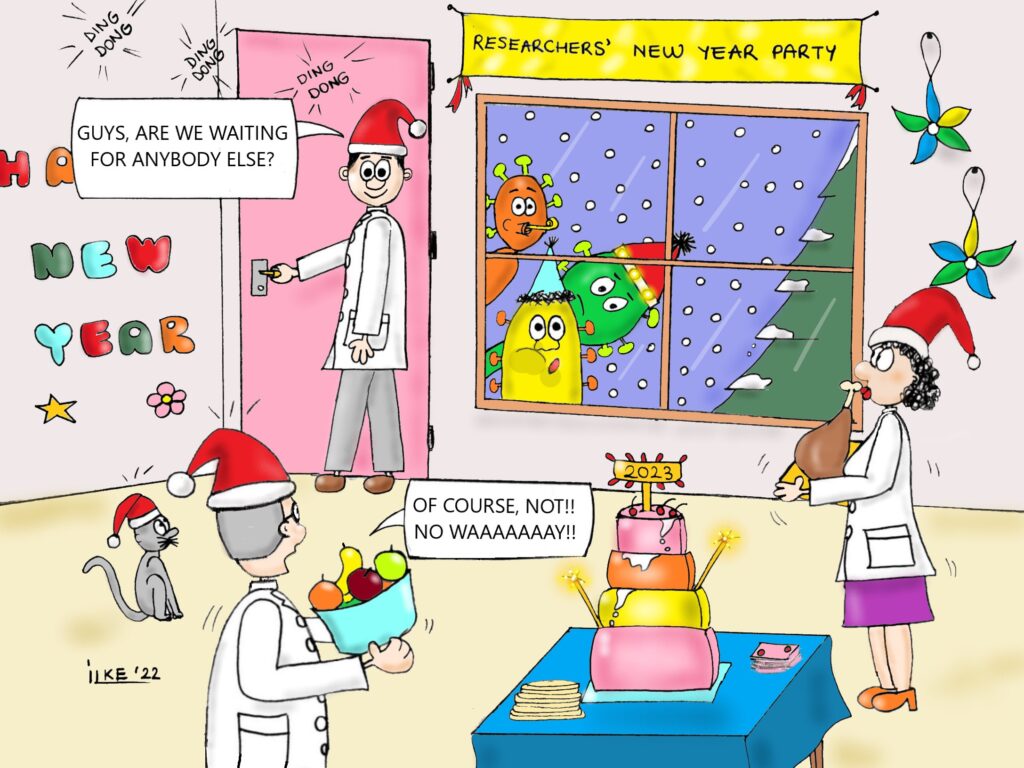The work environment, as well as the general well-being of researchers has been disrupted by the coronavirus disease 2019 (COVID-19) pandemic.1 Researchers had to make major/minor adjustments to research operations, and some ceased their research either temporarily or permanently. An online survey evaluating the impact of the COVID-19 pandemic on National Institutes of Health (NIH)-funded extramural principal investigators (PIs) and their projects revealed that 74.6% of the respondents reported that their professional life was affected by the pandemic.1 Another study showed that 77.8% of surveyed early career dementia researchers reported research delays during the pandemic. Moreover, 41.8% of the researchers experienced a negative effect of the COVID-19 pandemic on their career progression.2
There are several factors that may have impacted researchers’ productivity and willingness. A cross-sectional, stratified random sampling study examining the factors related to medical researchers’ intention to leave their research organization revealed that 41.4% of the researchers had a moderate/high level of intention to leave, with burnout and job dissatisfaction as the leading factors.3
Researchers reported that they needed support during the pandemic; particularly, younger researchers and those with family members requiring care. The needs included, but were not limited to, research promotion and online education for the development of skills.4 Confirming the positive role of institutional support, a 38-item survey of 772 dental researchers revealed that this support was associated with higher productivity and was beneficial in terms of mitigating the effects of the pandemic.5
The pandemic has had an impact on researchers and their related research practices, and thus on science editing. A tremendous volume of manuscripts on the pathophysiology and treatment strategies of COVID-19 have been submitted to journals worldwide, which has put extra weight on editors’ shoulders. Moreover, plagiarism has become another issue6 as well as a relative decrease in the number of non–COVID-19 publications for some journals.7 This may result in a possible delay in the quality of care for non-COVID diseases in the upcoming years.8
The researchers wish to have a COVID-free New Year!
References and Links
- Burnett WJ, Agbali R, Silva J, De Leo G. Impact of the COVID-19 pandemic on National Institutes of Health-funded researchers and their projects: the role of age, sex, experience, and team size. Public Health Rep. 2022. https://doi.org/10.1177/00333549221133809
- Bartels SL, Shaaban CE, Brum WS, Welikovitch LA, Folarin R, Smith A; ISTAART PIA to Elevate Early Career Researchers. Impact of the COVID-19 pandemic on early career dementia researchers: a global online survey. PLoS One. 2022;17:e0277470. https://doi.org/10.1371/journal.pone.0277470
- Mat Rifin H, Danaee M. Association between burnout, job dissatisfaction and intention to leave among medical researchers in a research organisation in Malaysia during the COVID-19 pandemic. Int J Environ Res Public Health. 2022;19:10017. https://doi.org/10.3390/ijerph191610017
- Nagata K, Tanaka K, Takahashi Y, Asada Y, Shimpuku Y, Yoshinaga N, Sugama J. Support nursing researchers’ need from academic societies during COVID-19: a cross-sectional survey. Nurs Health Sci. 2022. https://doi.org/10.1111/nhs.12988
- De Souza GM, Tiwari T, Fox CH, Miguez PA, Letra A, Geisinger ML, Patel M, Shaddox L, Ioannidou E. Perception of COVID-19 pandemic restrictions on dental researchers. J Dent Educ. 2022. https://doi.org/10.1002/jdd.13104
- Coskun Benlidayi I. The impact of COVID-19 pandemic on science editing. Sci Ed. 2021;8:126–127. https://doi.org/10.6087/kcse.241
- Raynaud M, Goutaudier V, Louis K, Al-Awadhi S, Dubourg Q, Truchot A, Brousse R, Saleh N, Giarraputo A, Debiais C, et al. Impact of the COVID-19 pandemic on publication dynamics and non-COVID-19 research production. BMC Med Res Methodol. 2021;21:255. https://doi.org/10.1186/s12874-021-01404-9
- Cosentino N, Marenzi G, Chiesa M. The Impact of COVID-19 pandemic on scientific research: an upcoming new wave? J Gen Intern Med. 2022;37:2553–2555. https://doi.org/10.1007/s11606-022-07647-6
Ilke Coskun Benlidayi, MD (ORCID: 0000-0001-6517-5969), is Associate Professor, Cukurova University Faculty of Medicine, Department of Physical Medicine and Rehabilitation, Adana-Türkiye.
Opinions expressed are those of the authors and do not necessarily reflect the opinions or policies of the Council of Science Editors or the Editorial Board of Science Editor.

